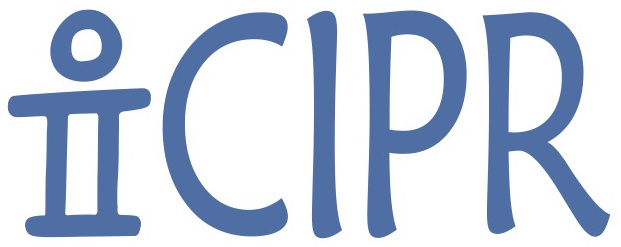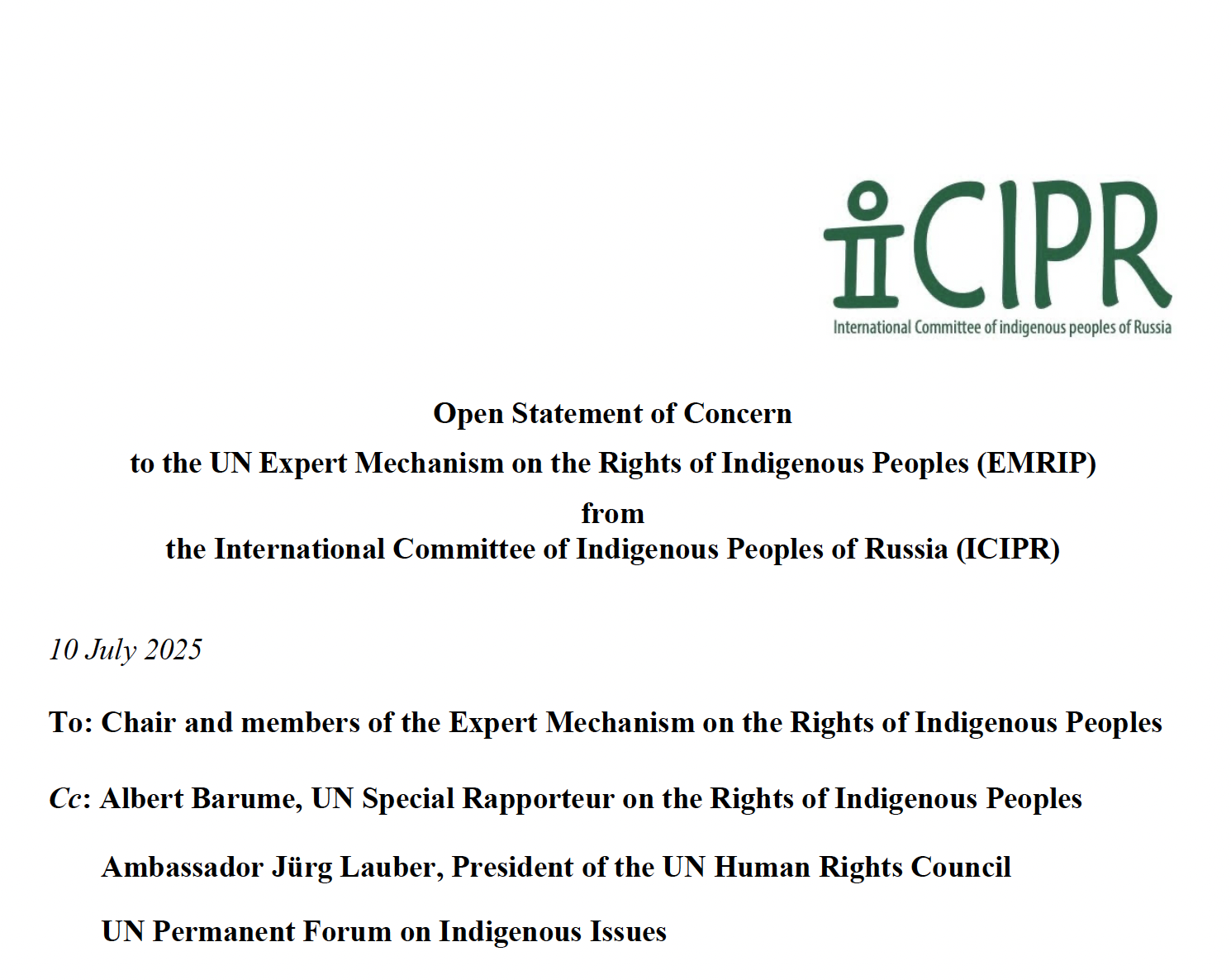ICIPR Warns the UN: Indigenous Rights in Russia Threatened by Manipulation and Co-optation
Geneva — The International Committee of Indigenous Peoples of Russia (ICIPR) has submitted an open statement to the UN Expert Mechanism on the Rights of Indigenous Peoples (EMRIP), expressing deep concern over the increasing interference of Russian state structures and extractive corporations in international Indigenous representation mechanisms.
The statement highlights that the Russian Association of Indigenous Peoples of the North (RAIPON) — once a genuine grassroots Indigenous platform — was forcibly taken over by the state in 2013 and has since been used as a tool of state propaganda and internal control. Today, RAIPON actively promotes state-aligned and corporate-supported figures into international Indigenous forums, including UN bodies.
Particular concern is raised over the appointment of Antonina Gorbunova to EMRIP as an “independent expert,” despite her direct affiliations with RAIPON and Norilsk Nickel — one of the world’s largest polluters of Indigenous lands. The statement also names Alexey Tsykarev, head of the Kremlin-linked “School of Indigenous Diplomacy,” as part of a broader effort to train and install so-called Indigenous diplomats loyal to state narratives.
“We name it for what it is: a sophisticated strategy by an authoritarian regime to manipulate identity and use it to legitimize repression,” ICIPR writes.
The committee warns that unless international bodies act swiftly, they risk losing the trust of Indigenous communities and becoming platforms for symbolic participation rather than real accountability.
ICIPR urges EMRIP to act with integrity and independence, and to uphold the voices of true Indigenous representation — not those elevated by corporate funding and authoritarian politics.

